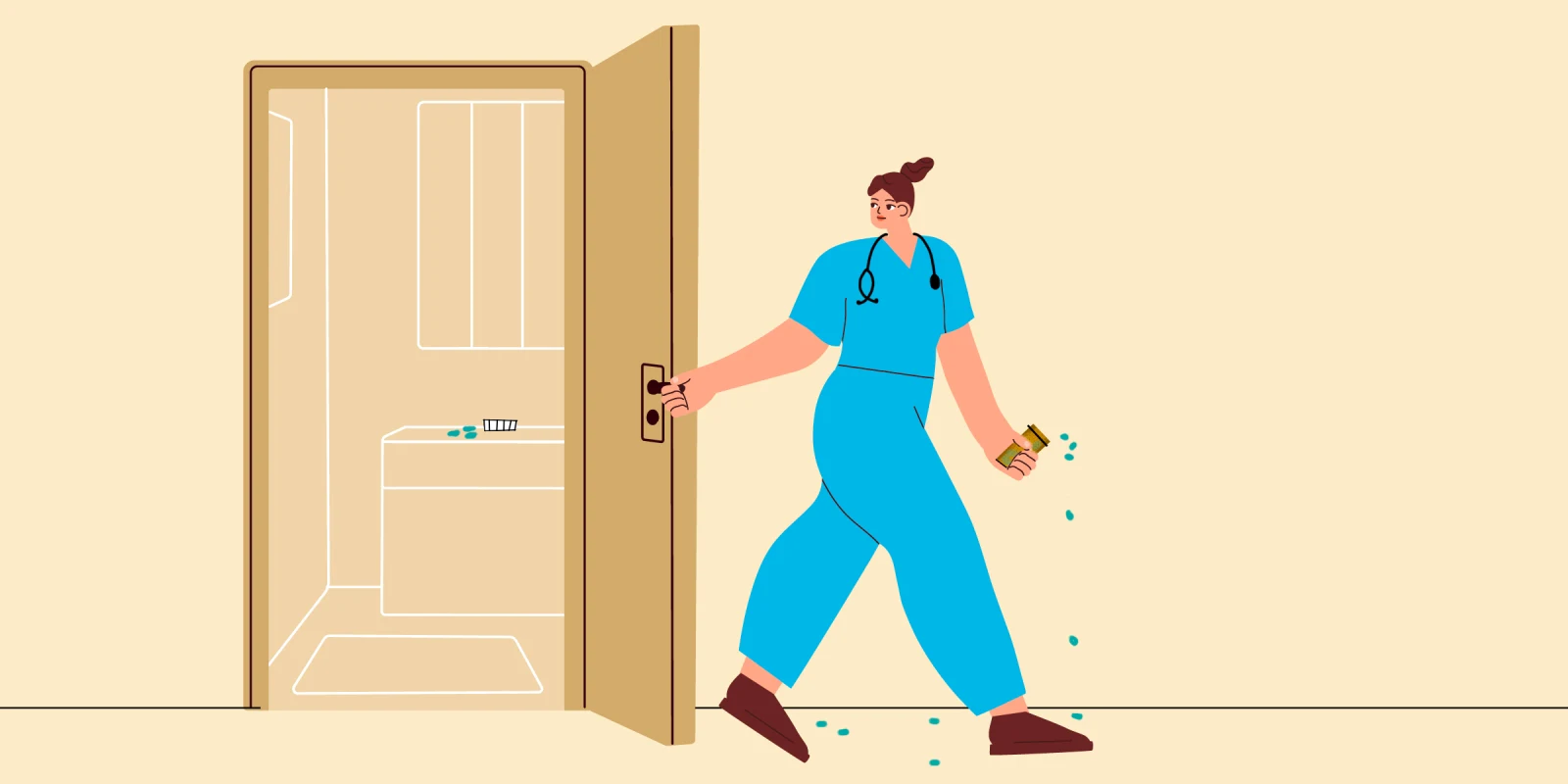We've all experienced the frustrations of working with a patient who doesn't take their prescribed medications. We feel like begging and pleading to get them to take their medicines to save them from their own downfall. We've seen what happens when people don't take their meds, and we know that the complications are avoidable if people would just take. Their. Meds. We also advocate for medication adherence as it enhances the efficacy of patient visits, ensuring a mutually beneficial outcome for both physicians and patients alike. Like a broken record, we'll say that we are doing what we can from our end, but nothing is going to change if the patient doesn't take their medications.
We also are aware of the common reasons behind medication nonadherence. Cost, forgetfulness, feeling better without the medicine, beliefs that they don't work, side effects, etc., are a few common reasons behind nonadherence. Another big reason behind the nonadherence is the mental health crisis. For example, a few of my clinic patients facing mental health challenges have shared that they've lost access to their psychiatrist or psychologist due to cost or insurance limitations. As a result, they struggle to take their daily medications, including their hypoglycemic medications. They only take them when they remember, about once or twice a week.
But what about medication nonadherence among those in the medical profession? Medical students, nurses, pharmacists, and physicians are all patients too. We know to take our medications when we're symptomatic, but what about when we're not? Many of us in the medical field consider ourselves immune to the thousands of diseases we learned about in school, especially among residents and medical students. We often feel young and invincible … until we're not. This may cause a sense of fear and disillusionment that we, in fact, are susceptible to the same conditions that afflict our patients. On top of that, some of us experience the same issues with cost, forgetfulness, side effects, and mental health problems. So how do we address medication nonadherence with the people who do their best to treat it day in and day out?
According to a 2017 NPR-Truven Health Analytics Health Poll, medication nonadherence especially affects those under the age of 35. With the median age of first-year medical students being 23, and thus residency at 27 or 28, we have an extremely vulnerable population within our medical bubble. How do we address this? Can we make a public service announcement video with hip Gen Z lingo and hope that works?
We can try. Hopefully without the cringe. According to a systematic literature review on online interventions for smoking cessation, web-based, tailored, interactive smoking cessation interventions increased six-month abstinence by 17%, and there is already published research on what makes these ads and interventions effective.
Another problem that should be addressed is cost. Medical students and resident physicians are known to not have a lot of cash inflow, so what if they can't afford it because their insurance doesn't cover the medication? This could be solved with GoodRx, a free-to-use telehealth website aimed at reducing the cost of purchasing prescriptions.
Another issue is time. The busy schedules gifted to us by medicine often don't give us time to take bathroom breaks — so forget about going to the pharmacy during open hours or finding the time to take a pill. With mail order pharmacies on the rise, this could be one way to combat time constraints. Another way is alarm setting. This has been a tried-and-true recommendation for our patients, and there is no reason to recommend against it for our own health care workers.
Although I personally have not experienced some of these challenges, I have had my own experience with medication nonadherence. Amid the demands of clerkships and the inconvenience of my pharmacy's location, nearly six months went by where I didn't refill a crucial prescription. I rationalized it by downplaying the severity of my condition. Truthfully, though, it scared me that my condition could worsen because of this nonadherence, and I tried not to think about it as much as I could. Thankfully, I was able to get back on track with the help of my parents, who care about my medical problems more than I do. Now that I have been able to maintain adherence for some time, I can say that this period of nonadherence impressed upon me the importance of consistent medication management, even with a busy schedule.
Just like we tell all our patients, medication nonadherence is a remediable issue and there are steps we can take to improve this for both our patients and us. No matter what the reason is behind the nonadherence, there are plenty of workarounds and solutions to ensure that we maintain our health as best we can.
How do you help combat nonadherence? Share in the comments.
Nina Maitra is a fifth-year medical student at the University of Missouri-Kansas City School of Medicine 6-Year Combined BA/MD program. She is interested in pursuing an internal medicine residency with a future career in hematology/oncology. In her free time, she enjoys reading novels, traveling, and learning languages.
Image by GoodStudio / Shutterstock







